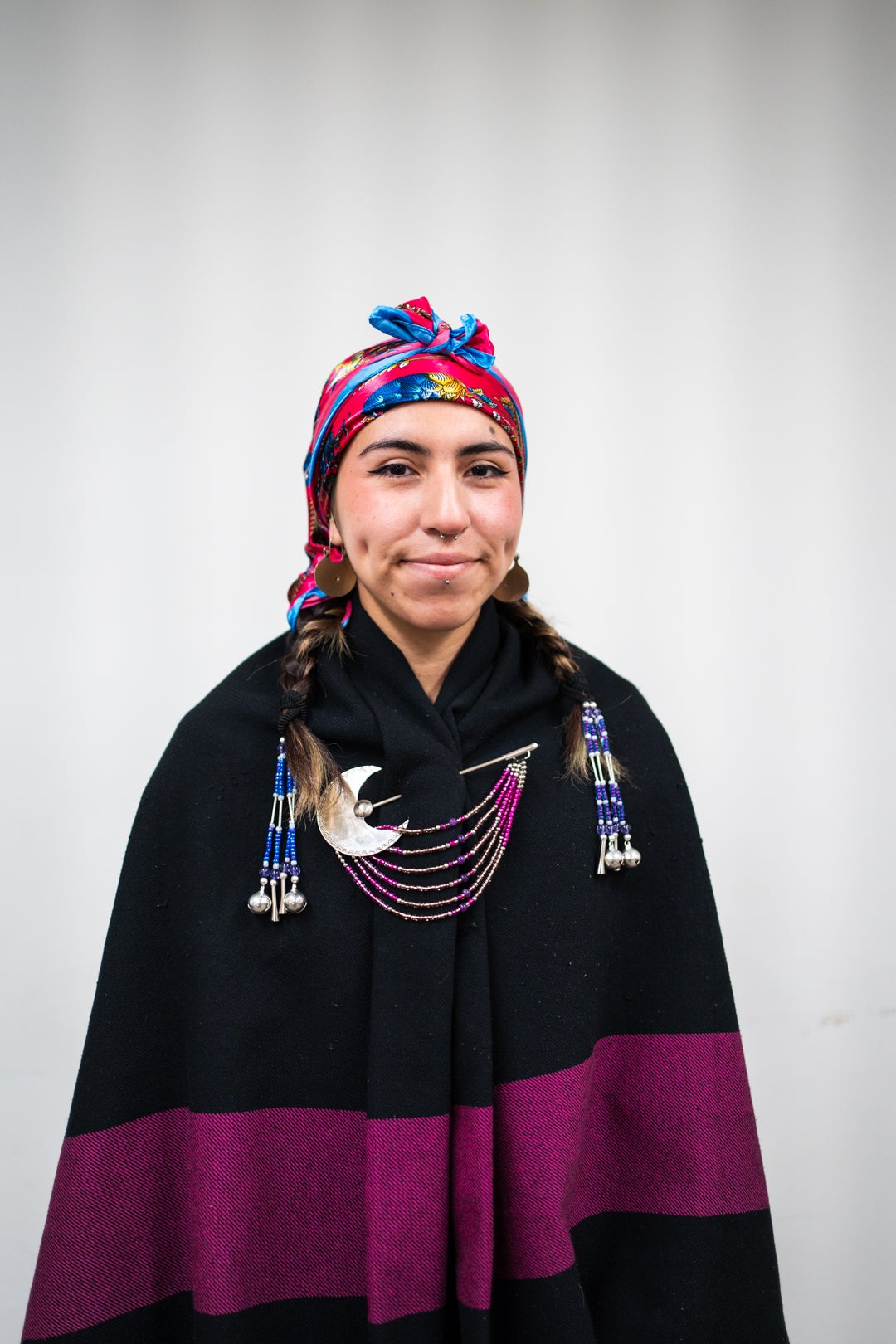
One legacy of colonialism is that our territories are constantly under threat. Chile was built on the usurping and dispossession of Indigenous territories, which reduced our population. As Indigenous Peoples, we have always been repressed and dispossessed in a systemic way. Being a defender of the land corresponds to following a path of struggle of our ancestors, a struggle that dates back centuries to revitalize our own culture and territory.
Today, the climate crisis and the effects of extractivism, where they are carried out in Indigenous territories, have extreme significance for the communities. The land is fundamental for our communities. We understand it not only as land but as territory, and we have a vital spiritual and emotional connection to it. We are not separated from the territory, but we are part of it. Therefore, the effects on the Earth also affect our lives and spirituality. The territory is an extension of our body; it is a relationship of equals.
I am part of Wechekeche Ka Itrofillmongen, which translates to Youth and Biodiversity. It is an organization that promotes spaces for Indigenous youth, making visible their diversity and recognizing their rights, needs, and ways of providing solutions. We are young people working for the defense and promotion of the rights of biodiversity, ecosystems, and nature, of people and environmental defenders, and of the powers inherited by our ancestors and families.

Rayen Rupayan. Photo by Jamie Malcolm-Brown/Cultural Survival.
Wechekeche Ka Itrofillmongen is a safe space for reunion and the construction of our own identity. We are making visible the problems of different communities, whether from Chile or other countries, at all levels, from local to international. We are constantly working to communicate with other organizations and communities to be able to know and offer our support.
Since 2020, we’ve been working on issues related to transition mineral mining and the extractive industry. We’re currently working on a series of podcasts about territorial defense that trace the supply chains from extraction to where these products end up. We’re talking about who is benefiting from the extraction of these minerals, about wealth, and also other financial needs for the communities.
The actions we have carried out through Wechekeche Ka Itrofillmongen have both a cultural and environmental focus, understanding that this will be fundamental in our growth as Indigenous youth and in the defense of our territory. We have visited communities across the country and have held nutram (conversations) with these communities about the extractive projects that threaten our territories. We have held workshops and interventions in different spaces, in addition to creating social networks where our people are informed about our actions and the problems of each territory we visit to be able to make visible what moves us.
As defenders of the land of Indigenous Peoples and young people, we find ourselves under a constant threat. Land and rights defenders are oppressed by the State, which calls us terrorists. We are oppressed and have been stripped of our territory, language, spirituality, and culture. As young defenders, we are more exposed to threatening situations, whether by the State or the extractive industry. Demonstrating and achieving impact or change means that we are an easy target and that it can cost us our own lives.
Our fellowship project, “Ti rüpu ingkakeleaiñ itxofill mongen” (The path of defending biodiversity), seeks to strengthen the capacity of the group members through activities and meetings to raise awareness about the need to defend and protect our territories affected by the so-called green extractivist model that promotes electric cars and other methods of electro-mobility targeted to young people in urban areas.
Through this project, we aim to remind everyone that young people have a vital role to play. We are trying to claim the same important leadership roles that we have in our communities within the power structures. Historically, our participation has been limited. We are working in this space to reclaim the identity and leadership of Indigenous youth in these spaces. We need to focus on taking that power back because those changes have to be made with us, not without us.
Rayen Rupayan (Mapuche) is a 2023 Cultural Survival Indigenous Youth Fellow and member of Wechekeche Ka Itrofillmongen in Chile.
